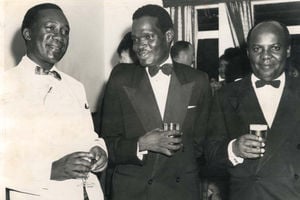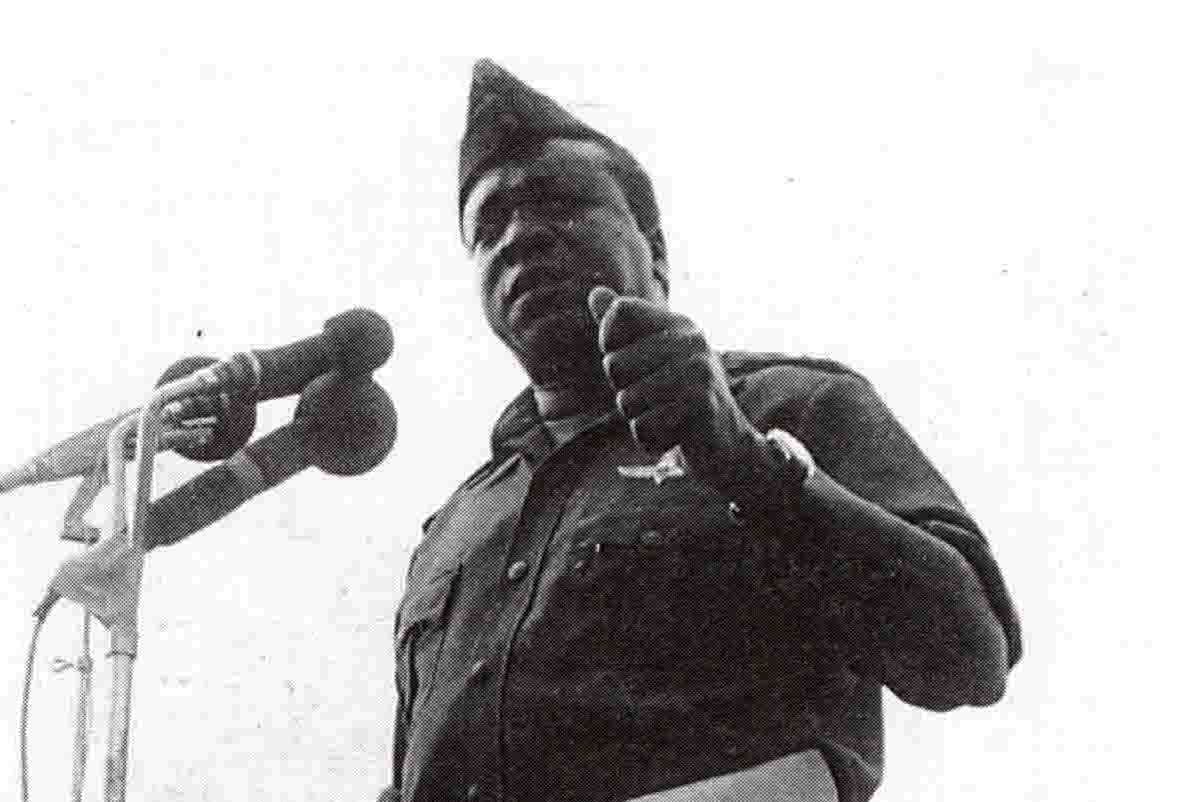
Most post-colonial African literature was previously, well, anti-colonial. As soon as the “Wind of Change” speech was made by British Prime Minister Harold Macmillan to the Parliament of South Africa on February 3, 1960, in Cape Town, the floodgates were left ajar. Thereupon, African literature of every stripe lined the pages of liberatory literature.
None more so in East Africa than the books written by James Ngũgĩ wa Thiong’o. For instance, his book A Grain of Wheat is quintessentially an anti-colonial book. It is also his third novel, published in the popular Heinemann series in 1967. The novel’s story arc bends towards happenings in those heady days immediately prior to Kenya’s Uhuru—Independence Day celebration.
In the novel, we have four contrasting personalities—Mugo, Kihika, Karanja and Gikonyo. They all have very specific responses to the incipient rise of nationalism after recognising the effects of imperialism on their culture, people and personal lives. The novel explicates allegorically strong themes of individualism, patriotism, religion, guilt and redemption. And thereby carries similar lessons with the late Chinua Achebe’s Arrow of God.
Achebe’s novel turns on the story of Ezeulu, the chief priest of several Igbo villages in colonial Nigeria, who confronts colonial powers and Christian missionaries in the 1920s. Such books, harping on themes of anti-colonialism and nationalism, were the rule, when African writers took exception to the “Aftermathematics” of colonial and neo-colonial dispensations that did not add up to African independence.
Anti-colonial literature
African novels, plays and poetry shaped a literary and political movement that sustained the intellectual underpinnings of the liberation of Africa against the yoke of colonial subjugation and racial segregation in the early 1930s through to the 1960s.
“African novels have become veritable weapons used to dismantle the hegemonic boundaries and determinants that create unequal relations of power, based on binary oppositions such as Us and Them, First World and Third World, White and Black, Coloniser and Colonised, etc. Actually, the African novel occupies a central position in the criticism of colonial portrayals of the African continent and people. It has been crossing boundaries and assaulting walls imposed by history upon the horizon of the continent whose aspirations it has been striving to articulate,” writes Ayobami Kehinde in Post-Colonial African Literature as Counter Discourse.
Indeed, as a counter-discourse to the presumed merits of imperialism and colonialism, African literature has flourished over the years, in many forms. These forms arose out of an anti-colonial yen for reformation and the re-orientation of consciousness among educated Africans through their writings, leading to movements like Négritude, African Aesthetics, and ideologies which sought to unshackle Africa of external control.
A literary movement of the 1930s, ‘40s, and ‘50s that began among French-speaking African and Caribbean writers in Paris, France, Négritude was a protest against French colonial rule and the policy of assimilation. Its leading figure was Léopold Sédar Senghor (first president of the Republic of Senegal in 1960), who, along with Aimé Césaire from Martinique and Léon Damas from French Guiana, began to examine Western values critically and to reassess African culture.”
It was influenced by the Harlem Renaissance, a literary and artistic revival brought about by Black novelists and poets, to a very large extent, in the United States, in New York City, during the 1920s. African thought was finally finding its voice. But was Uganda doing the same?
Makerere rising
As literary movements swept the continent, Uganda rode the wave of such curative trends. In the book Uganda Now: Between Decay and Development (Eastern African Studies) edited by Michael Twaddle and Holger Bernt Hansen, there are rumblings at Makerere University and not least because of Ngũgĩ wa Thiong’o.
“A number of students were invited to meet the distinguished visitor in the Makerere Arts Building, but when in a jolly way, Lennox-Boyd remarked that he wanted to see ‘the Kenya boys’ about a certain matter on his mind, he was most disconcerted when these particular students retaliated by walking away from him, muttering angrily that Lennox-Boyd considered them schoolboys, that he had a ‘settler mentality’, and that it was quite unrealistic to expect any sensible constitution to be discussed with such a man,” writes Hugh Dinwiddy and Michael Twaddle in Chapter 13 of the book.
They add: “But it is perhaps interesting to note that one of the Kenyans was Ngugi. Ngugi has also since then written vigorously about the necessity of ‘decolonizing the African mind’. For Ngugi, decolonisation of the African mind involves abandoning the English literature taught during his time at Makerere, and substituting it with novels and poetry written by Africans.”
African literature by Africans
From 1958, the English Department at Makerere produced an annual magazine called Penpoint that ran to about 25 pages and contained students’ short stories, poetry and plays of an African disposition. Many of these were subsequently collected and published in the anthology titled Origin East Africa under the editorship of a later head of the English Department, David Cook.
Makerere students were increasingly Africanist in outlook. The monthly journal, Transition, founded by Rajat Neogy and published for the first time in Kampala in November 1961, carried many of these strident sentiments.
“Stimulation to write about the African personality came partly from Anglophone Africans’ need to find something to say in reply to the earlier, eloquent stress upon ‘negritude’ by francophone Africans,” notes Twaddle.
The question then is: is anti-colonial literature still relevant? Yes, but its focus should no longer be on the colonialist; it should be on the neocolonial African leader, otherwise known as a comprador (agent of foreign interests).
The colonialist left behind a collaborating class of African rulers, when independence dyed in the ink of its declaratory hues. These are every bit as predatory as our colonial masters were. This is why we have seen an evolution of anti-colonial literature to anti-government literature. As the literati appreciate that it is Not Yet Uhuru, our literature should and will reflect this appreciation.







